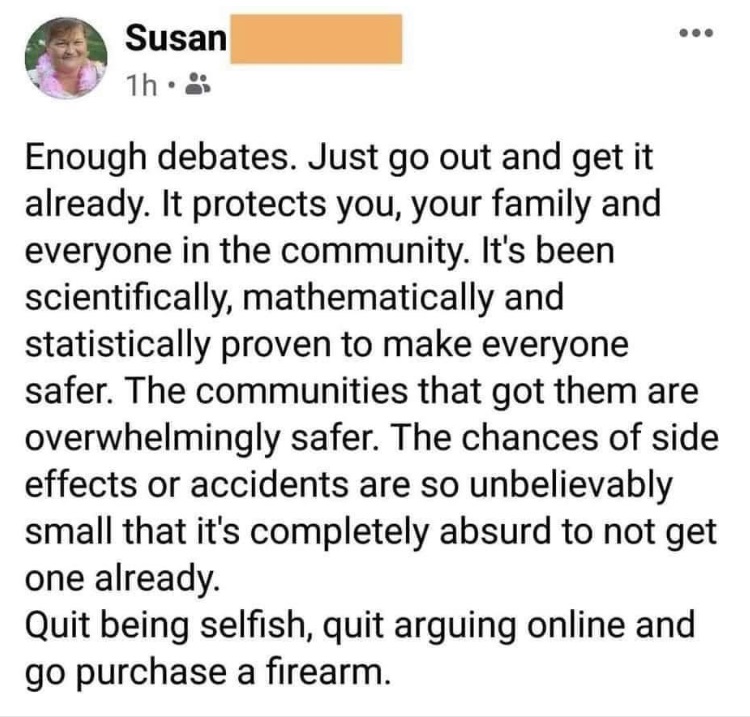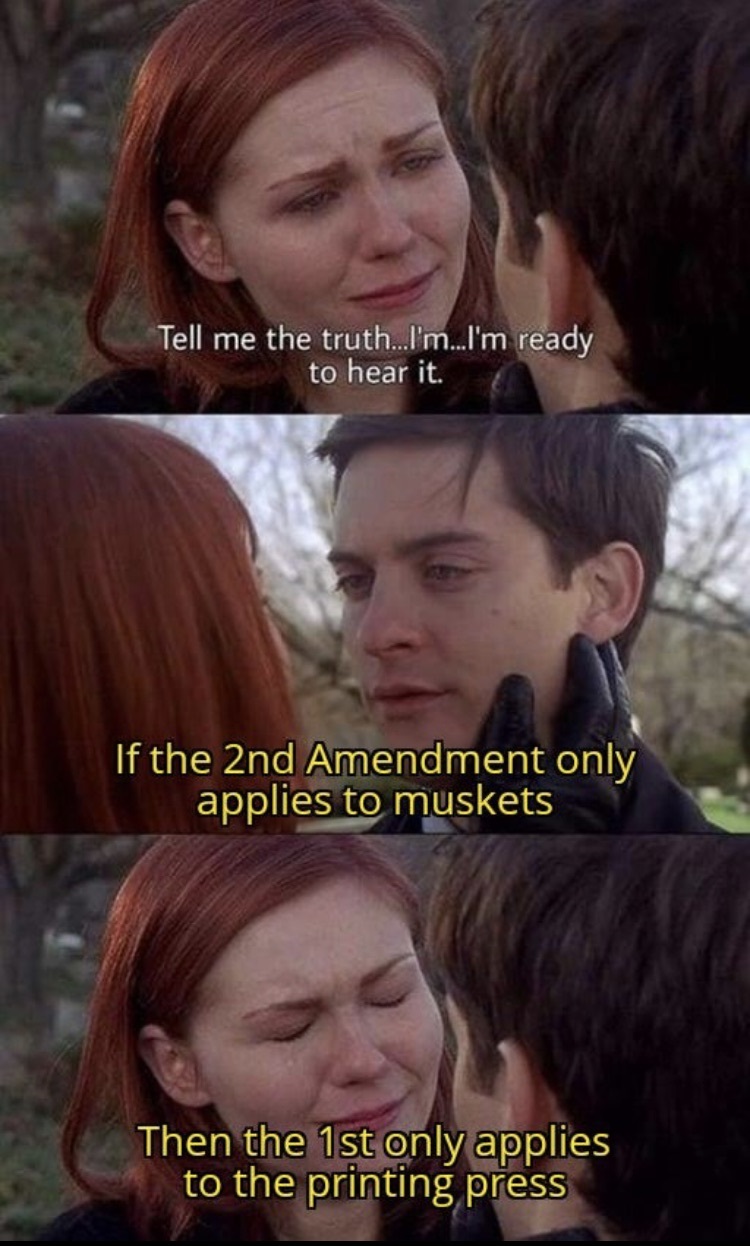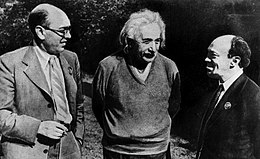—
Supreme Court to New York: Second Amendment Means What It Says
Amy Swearer / @AmySwearer / June 23, 2022

In an opinion written by Justice Clarence Thomas, the Supreme Court rules that the Second Amendment gives Americans the right to carry firearms in public places for self-defense. Pictured: Thomas speaks at a Heritage Foundation event Oct. 21 marking his 30 years on the high court. (Photo: Drew Angerer/Getty Images)
COMMENTARY BY
Amy Swearer is a legal fellow in the Edwin Meese Center for Legal and Judicial Studies at The Heritage Foundation.
The Supreme Court on Thursday issued its first significant opinion in a Second Amendment case in well over a decade, striking down a New York state law that effectively denied ordinary residents the right to carry a firearm in public for self-defense.
This decision, in New York State Rifle and Pistol Association v. Bruen, is a major victory for the sanctity of the Constitution, the integrity of the Supreme Court, and the personal safety of all Americans who choose to protect themselves with firearms.
In an opinion written by Justice Clarence Thomas, a majority of six justices affirmed that the Second Amendment means what it says—“the people” have a right not just to keep but to bear arms, including in public places for self-defense.
As a result, New York and other states with similar laws cannot continue treating this fundamental constitutional right as a unique privilege for the select few who government officials believe are sufficiently justified by a special “need” to protect themselves.
Background on New York’s Law
New York is one of only six states that have “may issue” licensing frameworks for the carrying of firearms in public, meaning that government officials have broad discretion to deny public carry permits for law-abiding applicants.
These six states also generally require—as New York does—that applicants demonstrate that they have “good cause” or “proper cause” for wanting to carry a firearm in public, which is often a demanding standard that ordinary residents rarely meet. New York City’s police department, for example, requires that applicants prove they are in “extraordinary personal danger, documented by proof of recurrent threats to life or safety.”
The petitioners in this case were two law-abiding New York residents who applied for unrestricted licenses to carry firearms in public, citing a general desire to defend themselves should they be violently victimized. Both had their applications denied because they did not “face any special or unique danger to [their] life.”
In other words, the government told the two residents they had no real reason to fear for their safety in public places, so the right to “bear arms” didn’t apply to them. They challenged the “good cause” requirement in federal court, claiming that it violated their Second Amendment rights.
The lower courts dismissed the complaint and cited two previous 2nd Circuit Court of Appeals cases that upheld the New York law as “substantially related to the achievement of an important governmental interest.”
The Supreme Court last fall granted certiorari—that is, agreed to review the case—after nearly 12 years of silence on Second Amendment issues, during which time lower courts routinely ran amok over the high court’s precedent in cases such as District of Columbia v. Heller (2008) and McDonald v. City of Chicago (2010).
What the Supreme Court Held
The majority of justices held that the Second Amendment protects an individual’s right to carry a handgun for self-defense outside the home, and that “good cause” requirements such as the one implemented by New York are unconstitutional because they “prevent law-abiding citizens with ordinary self-defense needs from exercising” this right in public.
In doing so, the high court explicitly rejected the interest-balancing approach relied upon by many lower courts when analyzing Second Amendment cases, which often results in gun control laws being upheld under a standard known as intermediate scrutiny.
Instead, the court spelled out an analytical framework that considers whether a challenged regulation is “inconsistent with the Nation’s historical tradition of firearm regulation.”
Under this framework, the court determined that New York simply could not meet its burden of demonstrating an American tradition of “broadly prohibit[ing] the public carry of commonly used firearms for personal defense or generally requir[ing] law-abiding responsible citizens to ‘demonstrate a special need for self-protection … ’ to carry arms in public.”
What Does This Mean Going Forward?
So what does the Supreme Court’s decision in this case mean for gun owners, other gun laws, and the future of the Second Amendment?
First, it’s important to remember that only six states have laws like the one challenged in New York. The court clearly explained that the ruling “should not be interpreted to suggest the unconstitutionality” of laws in other states where “a general desire for self-defense is sufficient to obtain a [permit].”
Although the justices didn’t “rule out constitutional challenges to shall-issue regimes” that are “put toward abusive ends,” the immediate impact is only for gun owners in the few states with “may issue” laws.
That still means, though, that for tens of millions of Americans residing in those states, the Second Amendment’s protections finally will become a practical reality. New York and other “may issue” states will have to reconfigure their laws to ensure that ordinary citizens are allowed some method of carrying firearms in public for self-defense.
But, as many commentators long suspected, the high court’s ruling does not immediately endanger the public carry permitting laws required by other states, nor does it signal that all states must adopt a permitless carry approach.
Second, the court’s clear rejection of intermediate scrutiny and use of a “text, history, and tradition” standard for analyzing Second Amendment cases sets a much-needed limit on lower courts’ future ability to undermine Supreme Court precedent with “means-end” and “interest-balancing” tests. Lower courts now have a much clearer road map for analysis, which means they will have less “wiggle room” to find any and every gun control law constitutional—a significant problem over the past decade.
Third, as Justice Samuel Alito suggests in his concurring opinion, residents in these six “good cause” states will finally be able to defend themselves more meaningfully in public when the government cannot—which is, sadly, most of the time.
The Second Amendment always has been centered on the natural right to self-defense, and, Alito added: “Today, unfortunately, many Americans have good reason to fear that they will be victimized if they are unable to protect themselves. And today, no less than in 1791, the Second Amendment guarantees their right to do so.”
For far too long, New York and states with similar laws have implemented a government monopoly on armed self-defense in public, often while boasting about failed criminal justice policies that routinely place law-abiding citizens in grave danger. Six justices spoke Thursday for the tens of millions of Americans residing in those states: The right to bear arms applies here, too.
Have an opinion about this article? To sound off, please email letters@DailySignal.com and we’ll consider publishing your edited remarks in our regular “We Hear You” feature. Remember to include the url or headline of the article plus your name and town and/or state.
Gun Control Humor
It was back in May when I last shared some satire about gun control, so let’s update the collection.
We’ll start with this very important public service announcement about the horrible consequences of drinking and smoking during pregnancy.

Next, we know that Texans have a gun-loving reputation, both nationally and internationally.
Now they’re taking the right to keep and bear arms to the next level.

Our third item is very clever, though won’t be well received by self-described feminists.

I sometimes joke that I’m a lesbian trapped in a man’s body.
Here’s the gun control version of changing one’s identity.

As usual, I’ve saved the best for last.
If I was still doing coronavirus-themed humor, this item would have been very appropriate.
But it also is perfect for mocking gun control.

For what it’s worth, this is both amusing and true.
If you want less crime, make sure there are plenty of law-abiding people with guns.
Gun Control Humor
There are some very serious moral, practical, and constitutionalarguments against gun control.
But I’m a big believer in also using satire to make the case for the 2nd Amendment.
And that’s the purpose of today’s column, which starts with this reminder – as Ron Swanson told us – that bad guys don’t care about laws.

Our second item involves a woman who obviously never studied logic or history.

Makes me wonder if she’s also the woman holding the Trump sign in this column?
Our third item also pokes fun at the logic (or lack thereof) of our leftist friends.

Next, the clever folks at Babylon Bee explain various home-defense strategies for a gun-free world.
Guns are on their way out. And thank goodness! We can’t wait to return to the utopian paradise we lost when guns were invented…Still, once in a great while, you might need to defend yourself against a ne’er-do-well. When those ruffians come kicking your door down, you need to be ready. Here are seven great ways to defend your home against an armed burglar when your guns have all been confiscated.
Here are a few of those options.

Option #3 surely is the best, just as demonstrated in this video.
Yet never forget that there are people who think gun-free zonesare a real answer.
Our next item is for guys, especially libertarian guys.

Reminds me of Barbie for Men.
As usual, I’ve saved the best for last. This meme is a helpful reminder that the Bill of Rights wasn’t limited to the technology of 1787.

By the way, this is an encore appearance for the man and woman in the above meme.
P.S. The full collection of gun control satire is available here.
Communism Humor
I mostly mock socialism, but its authoritarian cousin also is a good target for satire.
So here are some additions to our collection of communism humor.
I’m among the small minority of people who have never watched Game of Thrones, so I don’t know the backstory on these characters, but this meme has a very appropriate message about the nuclear-level naivete needed to believe Marx’s nonsense.

Though maybe the first frame should say “Readers of Teen Vogue.”
Next, we have a contribution from Babylon Bee.
It’s bad news that we’re suffering from a coronavirus that has killed several million people globally, but there’s another virus that has butchered 100 million people.

This next image reminds me of the joke about communism and electricity.

Per my tradition, here’s my favorite item from today’s collection.
I’m always very impressed by the people who are clever enough to create these Venn diagrams, and this one is better than most.

Though I’m tempted to ask who is worse, the soulless Marxist who rambles and can’t be reasoned with, or the people who rationalize, glorify, and justify Marxism?
—-
November 24, 2020
Office of Barack and Michelle Obama
P.O. Box 91000
Washington, DC 20066
Dear President Obama,
I wrote you over 700 letters while you were President and I mailed them to the White House and also published them on my blog http://www.thedailyhatch.org .I received several letters back from your staff and I wanted to thank you for those letters.
I have been reading your autobiography A PROMISED LAND and I have been enjoying it.
Let me make a few comments on it, and here is the first quote of yours I want to comment on: Looking back, it’s embarrassing to recognize the degree to which my intellectual curiosity those first two years of college paralleled the interests of various women I was attempting to get to know: Marx and Marcuse so I had something to say to the long-legged socialist who lived in my dorm,”
I noticed you mentioned Herbert Marcuse, and I have read of his influence in Francis Schaeffer’s book How should we then live?:
At Berkeley the Free Speech Movement arose simultaneously with the hippie world of drugs. … but rather a call for the freedom to express any political views on Sproul Plaza. … followed the teaching of Herbert Marcuse (1898-). Marcuse was a German professor of philosophy related to the neo-Marxist.
Bettina Aptheker and Herbert Marcuse pictured below:

Moral Support: “One Dimensional Man” author Herbert Marcuse accompanies Bettina Aptheker, center, and Angela Davis’ mother, Sallye Davis, to Angela Davis’ 1972 trial in San Jose. Associated Press
_
______________Francis Schaeffer is a hero of mine and I have posted many times in the past using his material. This post below is a result of his material..Communism catches the attention of the young at heart but it has always brought repression wherever it is tried. TrueCommunism has never been tried is something I was told just a few months ago by a well meaning young person who was impressed with the ideas of Karl Marx. I responded that there are only 5 communist countries in the world today and they lack political, economic and religious freedom.WHY DOES COMMUNISM FAIL?Communism has always failed because of its materialist base. Francis Schaeffer does a great job of showing that in this clip below. Also Schaeffer shows that there were lots of similar things about the basis for both the French and Russia revolutions and he exposes the materialist and humanist basis of both revolutions.
Schaeffer compares communism with French Revolution and Napoleon.
1. Lenin took charge in Russia much as Napoleon took charge in France – when people get desperate enough, they’ll take a dictator.
Other examples: Hitler, Julius Caesar. It could happen again.
2. Communism is very repressive, stifling political and artistic freedom. Even allies have to be coerced. (Poland).
Communists say repression is temporary until utopia can be reached – yet there is no evidence of progress in that direction. Dictatorship appears to be permanent.
3. No ultimate basis for morality (right and wrong) – materialist base of communism is just as humanistic as French. Only have “arbitrary absolutes” no final basis for right and wrong.
How is Christianity different from both French Revolution and Communism?
Contrast N.T. Christianity – very positive government reform and great strides against injustice. (especially under Wesleyan revival).
Bible gives absolutes – standards of right and wrong. It shows the problems and why they exist (man’s fall and rebellion against God).
WHY DOES THE IDEA OF COMMUNISM CATCH THE ATTENTION OF SO MANY IDEALISTIC YOUNG PEOPLE? The reason is very simple.
In HOW SHOULD WE THEN LIVE? The Rise and Decline of Western Thought and Culture, the late Francis A. Schaeffer wrote:
Materialism, the philosophic base for Marxist-Leninism, gives no basis for the dignity or rights of man. Where Marxist-Leninism is not in power it attracts and converts by talking much of dignity and rights, but its materialistic base gives no basis for the dignity or rights of man. Yet is attracts by its constant talk of idealism.
To understand this phenomenon we must understand that Marx reached over to that for which Christianity does give a base–the dignity of man–and took the words as words of his own. The only understanding of idealistic sounding Marxist-Leninism is that it is (in this sense) a Christian heresy. Not having the Christian base, until it comes to power it uses the words for which Christianity does give a base. But wherever Marxist-Leninism has had power, it has at no place in history shown where it has not brought forth oppression. As soon as they have had the power, the desire of the majority has become a concept without meaning.
Let me share with you the story of Paul Robeson and it demonstrates that he had to lie about how cruel communism was and the killing of his friend Itzik Feffer.
Paul Leroy Robeson (/ˈroʊbsən/ROHB-sən;[2][3] April 9, 1898 – January 23, 1976) was an American bass baritone concert artist and stage and film actor who became famous both for his cultural accomplishments and for his political activism
Robeson traveled to Moscow in June, and tried to find Itzik Feffer. He let Soviet authorities know that he wanted to see him.[207] Reluctant to lose Robeson as a propagandist for the Soviet Union,[208] the Soviets brought Feffer from prison to him. Feffer told him that Mikhoels had been murdered, and he would be summarily executed.[209] To protect the Soviet Union’s reputation,[210] and to keep the right wing of the United States from gaining the moral high ground, Robeson denied that any persecution existed in the Soviet Union,[211] and kept the meeting secret for the rest of his life, except from his son.[210]
Itzik Feffer (10 September 1900 – 12 August 1952), also Fefer (Yiddish איציק פֿעפֿער, Russian Ицик Фефер, Исаàк Соломòнович Фèфер) was a SovietYiddish poet executed on the Night of the Murdered Poets during Joseph Stalin‘s purges.
The American concert singer and actor Paul Robeson met Feffer on 8 July 1943, in New York during a Jewish Anti-Fascist Committee event chaired by Albert Einstein, one of the largest pro-Soviet rallies ever held in the United States. After the rally, Paul Robeson and his wife Eslanda Robeson, befriended Feffer and Mikhoels.

Itzik Feffer (left), Albert Einstein and Solomon Mikhoels in the United States in 1943.
https://spectator.org/espn-paul-robeson-stalinist-monday-night-football/
DANIEL J. FLYNN tells a few details in this sad story:
Why Did ESPN Showcase a Stalinist on Monday NightFootball?Stalin Peace Prize laureate Paul Robeson lauded on America’s No. 1 sports network.
In 1949, Robeson again traveled to the Soviet Union, where he had sent his namesake to school during the 1930s. Robeson had met poet Itzik Feffer and actor Solomon Mikhoels at a Polo Grounds rally of 50,000 people — the largest pro-Soviet event in the history of the United States — that welcomed their Jewish Anti-Fascist Committee in 1943. But by 1949 Stalin wished to kill Jews rather than use them for propaganda purposes. He murdered Mikhoels and later Feffer — but not before Robeson could visit his old friend the poet one last time.
David Horowitz describes this meeting in Radical Son:
In America, the question “What happened to Itzik Feffer?” entered the currency of political debate. There was talk in intellectual circles that Jews were being killed in a new Soviet purge and that Feffer was one of them. It was to quell such rumors that Robeson asked to see his old friend, but he was told by Soviet officials that he would have to wait. Eventually, he was informed that the poet was vacationing in the Crimea and would see him as soon as he returned. The reality was that Feffer had already been in prison for three years, and his Soviet captors did not want to bring him to Robeson immediately because he had become emaciated from lack of food. While Robeson waited in Moscow, Stalin’s police brought Feffer out of prison, put him the care of doctors, and began fattening him up for the interview. When he looked sufficiently healthy, he was brought to Moscow. The two men met in a room that was under secret surveillance. Feffer knew he could not speak freely. When Robeson asked how he was, he drew his finger nervously across his throat and motioned with his eyes and lips to his American comrade. “They’re going to kill us,” he said. “When you return to America you must speak out and save us.”
Instead, Robeson, who later confessed what happened to his son, spoke out in praise of his friends’ murderer.
“Yes, through his deep humanity, by his wise understanding, he leaves us a rich and monumental heritage,” Robeson recalled of Stalin. “Most importantly — he has charted the direction of our present and future struggles. He has pointed the way to peace — to friendly co-existence — to the exchange of mutual scientific and cultural contributions — to the end of war and destruction. How consistently, how patiently, he labored for peace and ever increasing abundance, with what deep kindliness and wisdom. He leaves tens of millions all over the earth bowed in heart-aching grief.”
Sincerely,
Everette Hatcher III, 13900 Cottontail Lane, Alexander, AR 72002, ph 501-920-5733 everettehatcher@gmail.com
Related posts:
Open letter to President Obama (Part 293) (Founding Fathers’ view on Christianity, Elbridge Gerry of MA)
President Obama c/o The White House 1600 Pennsylvania Avenue NW Washington, DC 20500 Dear Mr. President, I know that you receive 20,000 letters a day and that you actually read 10 of them every day. I really do respect you for trying to get a pulse on what is going on out here. There have […]By Everette Hatcher III | Posted in David Barton, Founding Fathers, President Obama | Edit |Comments (0)
The Founding Fathers views concerning Jesus, Christianity and the Bible (Part 5, John Hancock)
There have been many articles written by evangelicals like me who fear that our founding fathers would not recognize our country today because secular humanism has rid our nation of spiritual roots. I am deeply troubled by the secular agenda of those who are at war with religion in our public life. Lillian Kwon quoted somebody […]By Everette Hatcher III | Posted in David Barton, Founding Fathers | Edit | Comments (0)
The Founding Fathers views concerning Jesus, Christianity and the Bible (Part 4, Elbridge Gerry)
There have been many articles written by evangelicals like me who fear that our founding fathers would not recognize our country today because secular humanism has rid our nation of spiritual roots. I am deeply troubled by the secular agenda of those who are at war with religion in our public life. Lillian Kwon quoted somebody […]By Everette Hatcher III | Posted in David Barton, Founding Fathers | Edit | Comments (0)
The Founding Fathers views concerning Jesus, Christianity and the Bible (Part 3, Samuel Adams)
There have been many articles written by evangelicals like me who fear that our founding fathers would not recognize our country today because secular humanism has rid our nation of spiritual roots. I am deeply troubled by the secular agenda of those who are at war with religion in our public life. Lillian Kwon quoted somebody […]By Everette Hatcher III | Posted in David Barton, Founding Fathers | Edit | Comments (0)
The Founding Fathers views concerning Jesus, Christianity and the Bible (Part 2, John Quincy Adams)
There have been many articles written by evangelicals like me who fear that our founding fathers would not recognize our country today because secular humanism has rid our nation of spiritual roots. I am deeply troubled by the secular agenda of those who are at war with religion in our public life. Lillian Kwon quoted somebody […]By Everette Hatcher III | Posted in David Barton, Founding Fathers | Edit | Comments (0)
The Founding Fathers views concerning Jesus, Christianity and the Bible (Part 1, John Adams)
There have been many articles written by evangelicals like me who fear that our founding fathers would not recognize our country today because secular humanism has rid our nation of spiritual roots. I am deeply troubled by the secular agenda of those who are at war with religion in our public life. Lillian Kwon quoted somebody […]By Everette Hatcher III | Posted in Founding Fathers | Edit | Comments (0)
President Obama and the Founding Fathers
President Obama Speaks at The Ohio State University Commencement Ceremony Published on May 5, 2013 President Obama delivers the commencement address at The Ohio State University. May 5, 2013. You can learn a lot about what President Obama thinks the founding fathers were all about from his recent speech at Ohio State. May 7, 2013, […]By Everette Hatcher III | Posted in Founding Fathers, President Obama | Edit | Comments (0)
Francis Schaeffer’s own words concerning the founding fathers and their belief in inalienable rights
Dr. C. Everett Koop with Bill Graham. Francis Schaeffer: “Whatever Happened to the Human Race” (Episode 4) THE BASIS FOR HUMAN DIGNITY Published on Oct 7, 2012 by AdamMetropolis The 45 minute video above is from the film series created from Francis Schaeffer’s book “Whatever Happened to the Human Race?” with Dr. C. Everett Koop. This […]By Everette Hatcher III | Posted in Founding Fathers, Francis Schaeffer, Prolife | Edit |Comments (1)
David Barton: In their words, did the Founding Fathers put their faith in Christ? (Part 4)
America’s Founding Fathers Deist or Christian? – David Barton 4/6 There have been many articles written by evangelicals like me who fear that our founding fathers would not recognize our country today because secular humanism has rid our nation of spiritual roots. I am deeply troubled by the secular agenda of those who are at […]By Everette Hatcher III | Posted in David Barton, Founding Fathers | Tagged governor of connecticut, john witherspoon, jonathan trumbull | Edit | Comments (1)
Were the founding fathers christian?
3 Of 5 / The Bible’s Influence In America / American Heritage Series / David Barton There were 55 gentlemen who put together the constitution and their church affliation is of public record. Greg Koukl notes: Members of the Constitutional Convention, the most influential group of men shaping the political foundations of our nation, were […]By Everette Hatcher III | Posted in Founding Fathers | Edit | Comments (0)
John Quincy Adams a founding father?
I do not think that John Quincy Adams was a founding father in the same sense that his father was. However, I do think he was involved in the early days of our government working with many of the founding fathers. Michele Bachmann got into another history-related tussle on ABC’s “Good Morning America” today, standing […]By Everette Hatcher III | Posted in David Barton, Founding Fathers | Edit | Comments (0)
“Sanctity of Life Saturday” Taking on Ark Times Bloggers on various issues Part E “Moral absolutes and abortion” Francis Schaeffer Quotes part 5(includes the film SLAUGHTER OF THE INNOCENTS) (editorial cartoon)
I have gone back and forth and back and forth with many liberals on the Arkansas Times Blog on many issues such as abortion, human rights, welfare, poverty, gun control and issues dealing with popular culture. Here is another exchange I had with them a while back. My username at the Ark Times Blog is Saline […]By Everette Hatcher III | Posted in Arkansas Times, Francis Schaeffer, Prolife | Edit |Comments (0)
Article from Adrian Rogers, “Bring back the glory”
I truly believe that many of the problems we have today in the USA are due to the advancement of humanism in the last few decades in our society. Ronald Reagan appointed the evangelical Dr. C. Everett Koop to the position of Surgeon General in his administration. He partnered with Dr. Francis Schaeffer in making the […]By Everette Hatcher III | Posted in Adrian Rogers, Francis Schaeffer | Edit | Comments (0)
“Schaeffer Sundays” Francis Schaeffer’s own words concerning the possibility that minorities may be mistreated under 51% rule
Francis Schaeffer: “Whatever Happened to the Human Race” (Episode 4) THE BASIS FOR HUMAN DIGNITY Published on Oct 7, 2012 by AdamMetropolis ____________ The 45 minute video above is from the film series created from Francis Schaeffer’s book “Whatever Happened to the Human Race?” with Dr. C. Everett Koop. This book really helped develop my political […]By Everette Hatcher III | Posted in Francis Schaeffer | Edit | Comments (0)
—-
—

